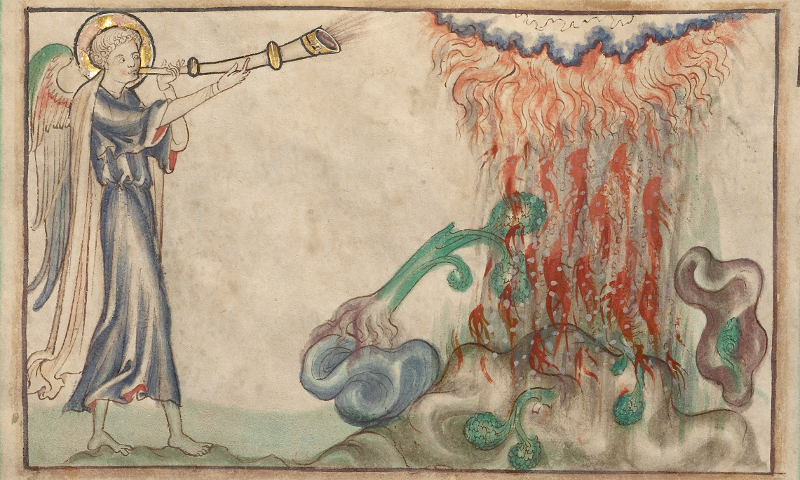The apostles held fast to Christ’s message (Liturgy of the Hours, Common of Apostles). Their message goes out to all the earth (Ps 19:4).
There is something I hate about the word “message.” Probably through no fault of its own—it sounds like a fine old frenchish word—it sounds to me like the weakest of words that we can use when we want to talk about words themselves. To give you a contrast: a strong word for talking about words is: word. Listen: “the Word of God.” Germanic, theologically loaded (“and the Word became flesh”), ends in an occlusive consonant (like “snap” or “rat”).
With “message,” I think of when someone says that they liked a lame movie because, “well, at least it had a good message.” Or some piece of quotidian information: “I left you a message about the meeting tomorrow.” Mere verbal content, indifferent to its form.
But the form of the “message” that Jesus gave to his apostles, the same one that, the Psalmist sings, the heavens have been mutely and inarticulately proclaiming for all of time (Rm 10:18), is no matter of indifference. God sends us things, and the way they come to us always means something. In Exodus, he was always sending things from heaven—bread, fire, laws, quails. When we read about what God has sent his people, we cannot abandon the things and just try to figure out the message. Those two, thing and message, are in fact converging on one another in the pilgrimage of Israel, with some alarming consequences.
In Bethlehem, the words of God converged entirely, so to speak, with the things he had been sending down. The law came down, but it came down as manna. The fire came down, but it came down as a baby (a “burning babe,” as one Jesuit once imagined him). Christmas is apt for gift-giving especially because, as front-yard signs are always proclaiming in a somewhat aesthetically lackluster way, God gave a “perfect gift.” The true and the good arrived unexpectedly hand-in-glove. Because they had been in tension: harsh truths seem to get in the way of good relations; good things are felt to be too good for words, even true words. But God is not impeded by such polite disagreements, and he intruded into his creation, a Word which forever bound itself to the Thing it came in. If that sounds strange and offensive, it’s because it is. And he could have done it another way, but he actually chose this, because it is not only good and true but best and wonderful.
✠







